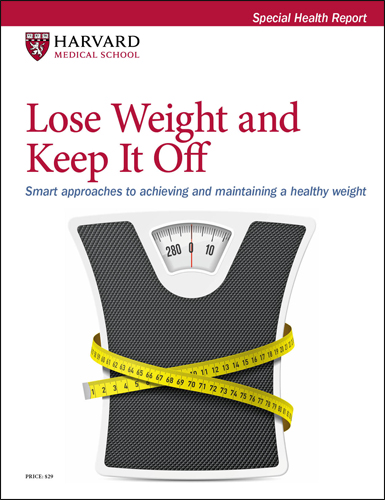Should I keep exercising if I can't lose weight?
Ask the doctor
 Q.
I've tried for 40 years to get down to a healthy weight by exercising. I take brisk walks for about two to three total hours every week, just like you recommend. But I'm about to quit because I just can't lose enough weight to make exercise worth doing. Is there another reason I should I keep going?
Q.
I've tried for 40 years to get down to a healthy weight by exercising. I take brisk walks for about two to three total hours every week, just like you recommend. But I'm about to quit because I just can't lose enough weight to make exercise worth doing. Is there another reason I should I keep going?
A. Yes there is. Don't stop the exercise, even if you can't get down to a healthy weight. Why? Because regular exercise brings enormous health benefits even if you can't get down to a healthy weight. A recent comprehensive analysis of the health benefits of regular exercise published Oct. 22, 2021, in the journal iScience makes this point loud and clear.
Regular exercise makes you physically fit, and being fit reduces your risk of heart disease, stroke, diabetes, Alzheimer's disease, and premature death — even if you can't get down to a healthy weight. Here are the numbers, as pulled together from many studies that followed thousands of people for many decades, including several studies conducted here at Harvard Medical School.
If you are overweight and unfit, your risk of premature death is double the risk of someone who is the same age and sex, and is also overweight, but remains fit. The same is true if your weight is in the healthy range: being fit reduces your risk. And if instead of your risk of premature death we were talking about your risk of a heart attack, a stroke, diabetes, or Alzheimer's disease, the same general point would be true: regular exercise will reduce your risk, even if you can't achieve a healthy weight.
One of the reasons people who are overweight are at risk for poor health is that they are more likely to have certain risk factors for various major diseases — for example, high blood pressure, high cholesterol, high blood sugar levels. Regular exercise improves all of these risk factors, even if you can't achieve a healthy weight.
When I talk with my patients about the things they can do to increase their chance at a long life, they sometimes respond by saying something like, "Why would I want to live longer? It would just prolong the years of my decrepitude." That's a common misconception: in fact, the same practices that extend a person's life also reduce the risk of decrepitude.
In 2021, Hester Ford of Charlotte, N.C., the oldest person in the United States, passed away at the age of 116. She attributed her longevity to walking several miles every day, even past the age of 100. She lived a long life and she remained vital right up to the end — because she just kept walking.
Image: © SDI Productions/Getty Images
About the Author

Anthony L. Komaroff, MD, Editor in Chief, Harvard Health Letter; Editorial Advisory Board Member, Harvard Health Publishing
Disclaimer:
As a service to our readers, Harvard Health Publishing provides access to our library of archived content. Please note the date of last review or update on all articles.
No content on this site, regardless of date, should ever be used as a substitute for direct medical advice from your doctor or other qualified clinician.
















